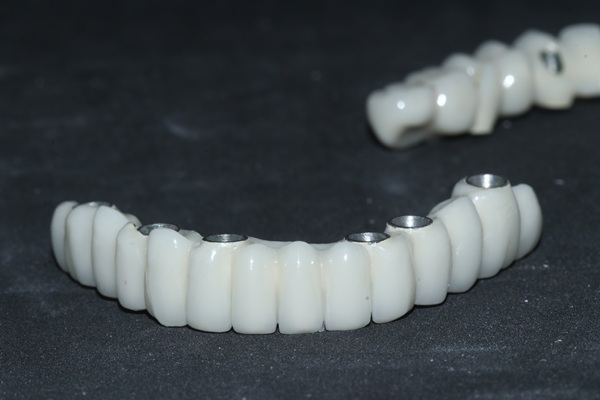5 Signs and Symptoms of Occlusal Disease

Occlusal disease is a topic that is just starting to gain some traction in the dental and medical community. This is a disease that can be hard to understand.
In order to understand it more clearly, we will first take the definition of occlusion from the American Dental Association: "Any contact between biting or chewing surfaces of maxillary (upper) and mandibular (lower) teeth." This means that occlusal disease is a set of symptoms or problems that happen during or because of biting, chewing or contact between the upper and lower teeth.
Symptoms of occlusal disease
1. Facial pain
When affected by occlusal disease, your teeth are a different shape than what they should be for good chewing technique. So without thinking, you might be chewing in an unnatural or irregular way. This would cause the muscles of your face to strain and cause general muscle pain in your face. You might also experience joint pain in your jaw.
2. Headaches
This is a symptom that many people do not mention to their dentist. However, it is involved in almost every kind of dental disease and you should mention headaches at every visit. Headaches are often caused by tired muscles or grinding that can be associated with occlusal diseases.
3. Tired facial muscles
Occlusal disease causes a restructuring of the teeth and it can become more difficult to chew your food effectively. This means that you might be chewing for longer and longer, which will make your jaw muscles tired.
4. Tooth sensitivity
Constant wear-and-tear can shave off the enamel of your teeth and expose the inner pulp to the elements. This will make your teeth much more sensitive to temperature and the elements.
5. Vibrations (Fremitus)
A fremitus is usually caused by occlusal trauma, or when two occlusive teeth are smashing together harder than they should be. Your dentist can touch the side of your mouth and feel these vibrations.
Causes of occlusal disease
To further help understand how occlusal disease can occur, the following are some of the causes of this condition:
Dental attrition
Attrition is wear resulting from tooth-on-tooth contact. You chew a lot in your lifetime, and eventually, the enamel starts to wear down. This is a normal part of the aging process and is also a common issue for people with bruxism (teeth grinding).
Abrasion
This is the loss of enamel from using your teeth for things other than eating. For example, using your teeth to remove bottle tops, hold pins or to bite your nails.
Toothpaste abrasion
This is a version of abrasion that involves brushing too hard. Try to use a gentle brushing motion on your teeth to avoid damaging them.
Erosion
Erosion is when your teeth wear away from acidic substances that are not caused by bacteria. This usually includes carbonated drinks and acidic fruit juices.
Are you experiencing some of these symptoms?
Talk to your dentist as soon as possible. You may need some cosmetic dental or orthodontic work to fix the damage and return your bite to normal. If you have any questions, our professional office staff is happy to speak with you.
Request an appointment here: https://whiteflintfamilydental.com or call White Flint Family Dental at (301) 273-1085 for an appointment in our Rockville office.
Check out what others are saying about our services on Yelp: Read our Yelp reviews.
Recent Posts
Implant-supported dentures offer a secure, long-lasting solution for those seeking enhanced comfort and function after tooth loss. Unlike traditional dentures, these restorations attach to dental implants that the dentist must anchor into the jawbone. Understanding how implant-supported dentures work, the advantages they offer, and how to care for them can help patients become active partners…
An experienced cosmetic dentist can brighten and whiten your teeth again. Lifestyle and diet choices can contribute to dental staining. In some cases, medications cause teeth to discolor. Bringing the sparkle back to them is important for your self-esteem. Here are the teeth whitening options that you can get from your cosmetic dentist.Over-the-counter teeth whitening…
A cosmetic dentist helps enhance the smile's appearance. They may correct cracks, chips, and other cosmetic imperfections in the tooth enamel through options, including tooth contouring or dental veneers. While similar, a patient will only need one of these cosmetic dental procedures. Learning the differences between these two procedures can help determine which treatment meets…
A CEREC dentist uses advanced technology to provide quick, effective treatments that restore damaged teeth. CEREC, which stands for Chairside Economical Restoration of Esthetic Ceramics, allows dentists to create dental restorations like crowns, veneers, and fillings in just one visit. This modern approach eliminates the need for messy impressions and multiple appointments, saving time while…


